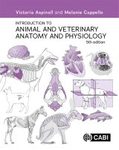About this book
This book examines the evolution of the phenomenon and explores the genesis of overtourism and the system dynamics underlining it.
The 'overtourism' phenomenon is defined as the excessive growth of visitors leading to overcrowding and the consequential suffering of residents, due to temporary and often seasonal tourism peaks, that lead to permanent changes in lifestyles, amenities and well- being. Enormous tensions in overtourism affected destinations have driven the intensification of policy making and scholarly attention toward seeking antidotes to an issue that is considered paradoxical and problematic.
Moving beyond the 'top 10 things you can do about overtourism', this book examines the evolution of the phenomenon and explores the genesis of overtourism as well as the system dynamics underpinning it. With a rigorous scientific approach, Overtourism uses systems-thinking and contemporary paradigms around sustainable development, resilience planning and degrowth; while considering global economic, socio-political, environmental discourses.
- Deconstructs 'overtourism' and considers the many constituent parts that have led to its current conceptualisations
- Presents globally diverse views of overtourism through numerous case studies
- Written in plain language accessible to readers beyond the academic context
Researchers, analysts, policy makers and industry stakeholders working within tourism as well as those within the private sector, community groups, civil society groups and NGOs will find Overtourism an essential source of information.
Contents
Chapter 1: Venice: an analysis of tourism excesses in an overtourism icon
Chapter 2: Tourist Gentrification of retail shops in Palma (Majorca)
Chapter 3: ‘Todos a Galápagos?’ Overtourism in wilderness areas of the Global South
Chapter 4: Beyond Overtourism: Studying the Entanglements of Society and Tourism in Iceland
Chapter 5: Responses to overtourism in Guanacaste (Costa Rica): a rural water conflicts’ perspective
Chapter 6: Overcrowded Amsterdam – Striving for a balance between trade, tolerance and tourism
Chapter 7: Public policies and tourist saturation in the favelas of Rio de Janeiro
Chapter 8: Short-term accommodation and overtourism in Portuguese urban centres
Chapter 9: My overloved town: The challenges of growing up in a small coastal tourist destination (Byron Bay, Australia)
Chapter 10: Greenland’s Tourism Policymaking and the Risk of Overtourism
Customer Reviews
Biography
Dr Claudio Milano is a social anthropologist with a background in economics and tourism management. He received honours from the University of Naples Federico II in 2007 and 2010 and obtained the endorsement of International Doctoral Research Component at the Department of Social and Cultural Anthropology, Universitat Autònoma de Barcelona in 2015. Claudio is the Director of the Master in Sustainable Tourism Destinations and Regional Tourism Planning at Ostelea School of Tourism & Hospitality (University of Lleida, Spain), an Affiliate Member of the UNWTO. Claudio has been a consultant for international agencies on human rights, development and tourism projects in India, Peru, Senegal and Brazil. He was Visiting Researcher at the University of Lumiere 2 Lyon (France) and Stockholm University (Sweden) and Visiting Lecturer at the Federal University of Piauí (Brazil), the Strathmore University of Nairobi (Kenya) and the University of Colombo (Sri Lanka). He has held positions in the tourism sector, including Siyaram Holiday Makers (Siyaram Group), India. He is a member of the Anthropological Observatory of Urban Conflict (OACU), Turismografias (Tourism and Urban Processes Network), the Research Group on Exclusion and Social Control (GRECS) of University of Barcelona, the International Network of Researchers in Tourism, Development and Cooperation (COODTUR) and the interdisciplinary Tourism Research Group (GRIT). Claudio's 2017 publications include: Otherness Anthropologies: Toward Ibero-American Anthropologies of Tourism, American Anthropologist, Overtourism y Turismofobia. Tendencias Globales y Contextos Locales, Ostelea School of Tourism & Hospitality and El Turismo en el Mundo Rural: ¿Ruina o Consolidación de las Sociedades Campesinas e Indígenas?, Pasos - Journal of Tourism and Cultural Heritage with J. Gascón (Eds.)
Dr Joseph M. Cheer is a human/tourism geographer and cultural anthropologist. Before joining academia, Joseph held roles in the international hotel industry with Ritz-Carlton, Hilton International and Accor. He also has a background in banking and finance/management consulting. Prior to commencing his PhD in 2010, Joseph was Technical Advisor to the Australian Government's aid agency AusAID, and its project focused on developing the capacity for Pacific Islander's to engage in tourism – with a focus on Fiji, Samoa and Vanuatu. He continues to advise public (Austrade/Tourism Research Australia) and private sector organisations on tourism development and was recently on the Australian Government's China Tourism Mission. Joseph has worked extensively in countries of the Asia-Pacific region and is also Senior Visiting Research Fellow at Wakayama University in Japan. He has also attended as visiting research fellow at Mid-Sweden University, Hiroshima University, University of Colombo and University of the South Pacific.



































